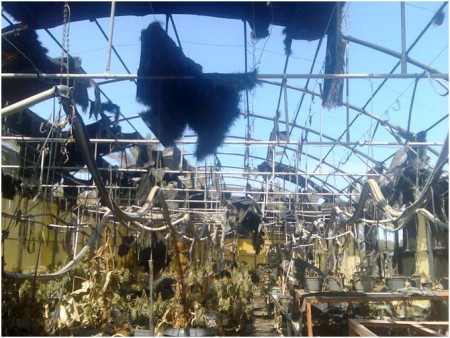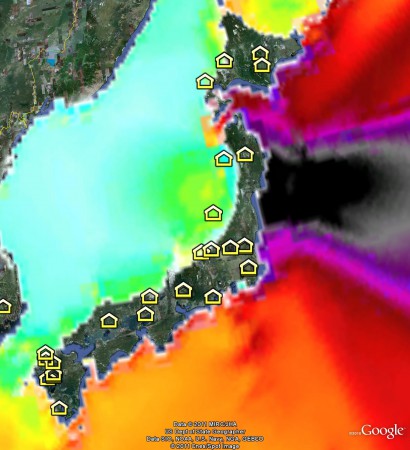- Ecological intensification: some new science to use.
- Tetraploid turnip tolerates salt.
- The Scientist Gardener does colourful pepper (mostly) breeding.
- “Envy holds back agricultural development.” Say wha?
- IFPRI sells what it is up to on Policies and Nutrition.
- Cleome gynandra is a C4 plant with wonderful adaptations; I bet the people eating it don’t know that.
- IRRI impresses UK diplomat, especially the genebank.
5th European Seminar on AgroBiodiversity
Thanks to the excellent DAD-Net 1 comes news of the 5th European Seminar on AgroBiodiversity: “Preservation or Adaptation? – Conservation in the face of a changing environment.” It’s to be held 25 September 2011 in Dimitrovgrad, Serbia (that’s near the Bulgarian border), as part of the annual meeting of the SAVE Foundation and the European SAVE Network. Sounds like great fun, especially the “Regional Fair of Balkan AgroBiodiversity.” Anyone going?
The CGIAR’s impact spelled out
The collaborative work of the Consultative Group on International Agricultural Research (CGIAR) has resulted in development impacts on a scale that is without parallel in the international community.
And there are 40 of them, more than half in crop improvement, half a dozen in natural resources management, a few in the policy arena. Anyone out there disagree? Anything left out? Anyone think some of “impacts” included are not so great after all? Let us know.
Let me start the ball rolling. I happen to think that putting together and maintaining the international germplasm collections, and placing them under the aegis of the International Treaty, is a significant technical and policy achievement in its own right. After all, they underpinned all that crop improvement. Maybe that doesn’t count as an “impact.” But perhaps it should.
Nibbles: Mapping species, Paddies, Duplicates in genebanks, Chinese mystery millet, Cherimoya, ITPGRFA, AnGR lectures, Bulgur, Heirloom apples
- Biogeographic Information System Spatial Ecological Analysis of Megavertebrate Populations. Not agrobiodiversity by any stretch but stunning all the same, and a clarion call to our community to sort out Genebank Database Hell, surely.
- Traditional paddies as ecosystems. Great ones, too.
- Title says “seed banks susceptible to sham samples,” text says not really, and maybe it doesn’t matter much anyway. Our take from a few days ago.
- China’s millet useful in Africa. Which millet? Your guess is as good as mine.
- Cherimoya going seedless.
- Annex 1 list of International Treaty on PGRFA to expand? Well, maybe. Whatever, wow.
- Lecture materials on conservation and use of animal genetic resources.
- The ancient fast foods of Greece.
- Conserving heirloom apples. Nice gig if you can get it.
Genebanks under threat all over
More bad news for the Egyptian Deserts Genebank. El-Sayed Mohamed El-Azazi tells us of a fire on Thursday 10 March, mainly affecting the glasshouses, by the look of it. The cause is unknown, but El-Sayed does say there is no security at all on the premises still. Coincidentally, there was a piece on El Masry Al Youm (Egypt Today, I believe) on the quite separate National Gene Bank of Egypt the very next day, painting a somewhat surreal, under the circumstances, picture of tranquility and business-as-usual.
As for the situation in Japan, still no news of any damage to genebanks there. The recently published Google Earth plugin modeling the height of the tsunami is incredibly scary. Black is >250cm, even orange is 50cm.

